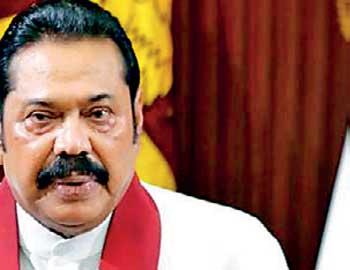Reply To:
Name - Reply Comment
 By Yohan Perera and Ajith Siriwardana
By Yohan Perera and Ajith Siriwardana
Sri Lanka’s economy has fared better than many other countries in the globe in the wake of COVID-19 pandemic in 2020 as its economic growth had been -3.9% in the 4th quarter compared to approximate global economy growth has been -5% Prime Minister Mahinda Rajapaksa told Parliament yesterday.
Responding to a question raised by SJB MP Patali Champika Ranawaka in the House, the Prime Minister said Sri Lanka’s budget deficit has been Rs. 178,930 million during the period between December 1, 2019 and September 1, 2020. There has been a deficit of Rs. 175,750 million in the domestic front while there has been a deficit of Rs. 3,180 million in foreign finances.
Also he said the government has decided on bridging the budget deficit through domestic borrowings and to borrow internationally, only through technical instruments and do so if special situations arise.
According to the data presented by the Prime Minister, only the revenue from corporate income tax, PAYE tax on Economic service charge, Excise duty on imported vehicles and NBT has been reduced. Accordingly, revenue collected from corporate income tax has been reduced to Rs. 151,503 million during the period between December 1, 2019 and September 30, 2020 compared to Rs. 202,787 million from December 1, 2018 and September 30, 2019, while revenue collected from PAYE tax has been reduced to Rs. 15,518 million in the stipulated period in from 2019, 2020 from Rs. 41,459 million in the same period 2018/2019.
Revenue from economic service charge has been reduced to Rs.14,614 million Rs.42,411 million, VAT on imports has been reduced to Rs. 69,426 million from Rs. 146,754 million and the revenue from Excise duty on imported vehicles have been reduced to Rs.56, 849 million from Rs.104,754 million during the stipulated periods. However there has been no vast difference in revenue collected from income tax on individuals, excise duty on liquor, cigarettes CESS etc.